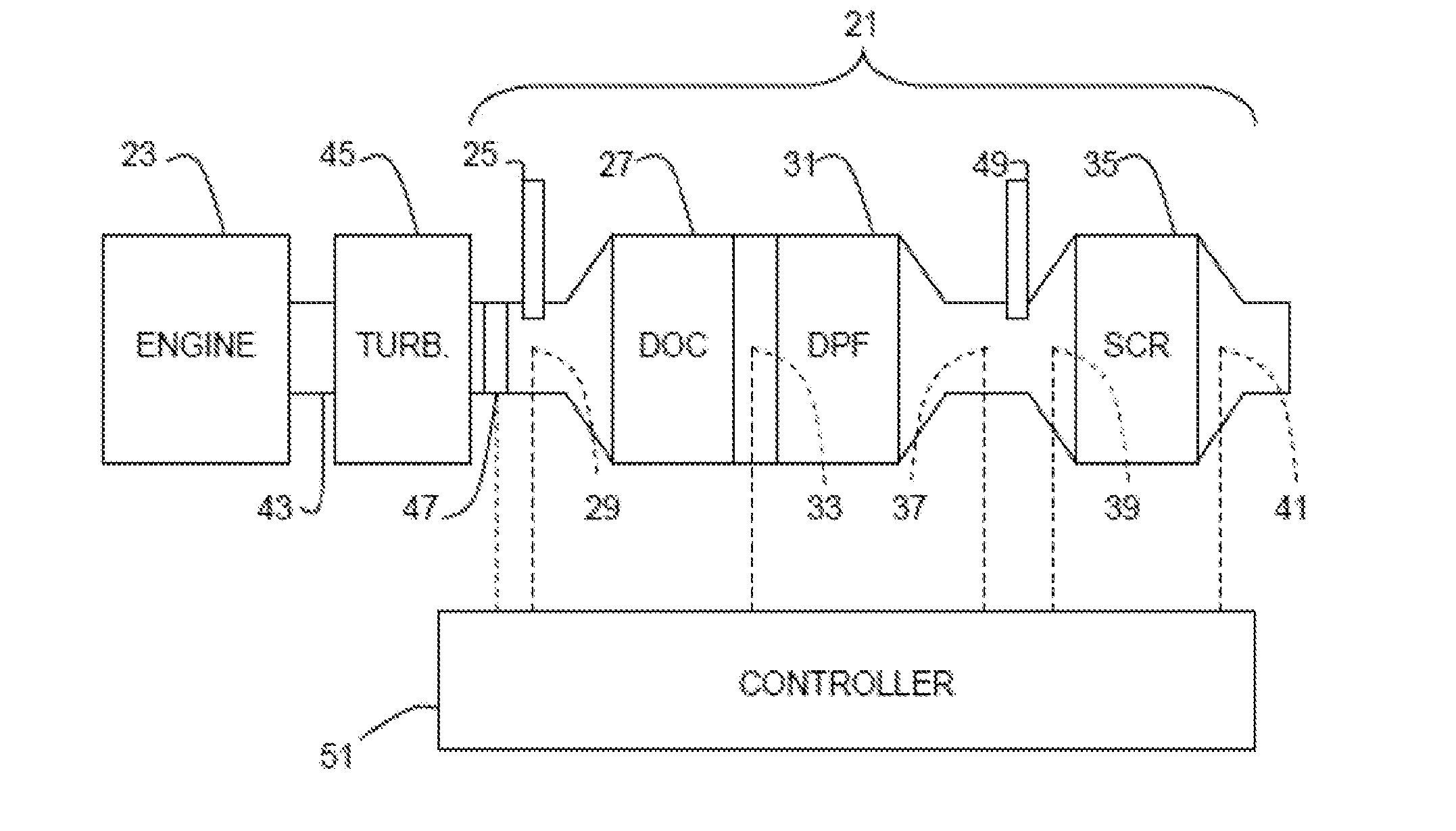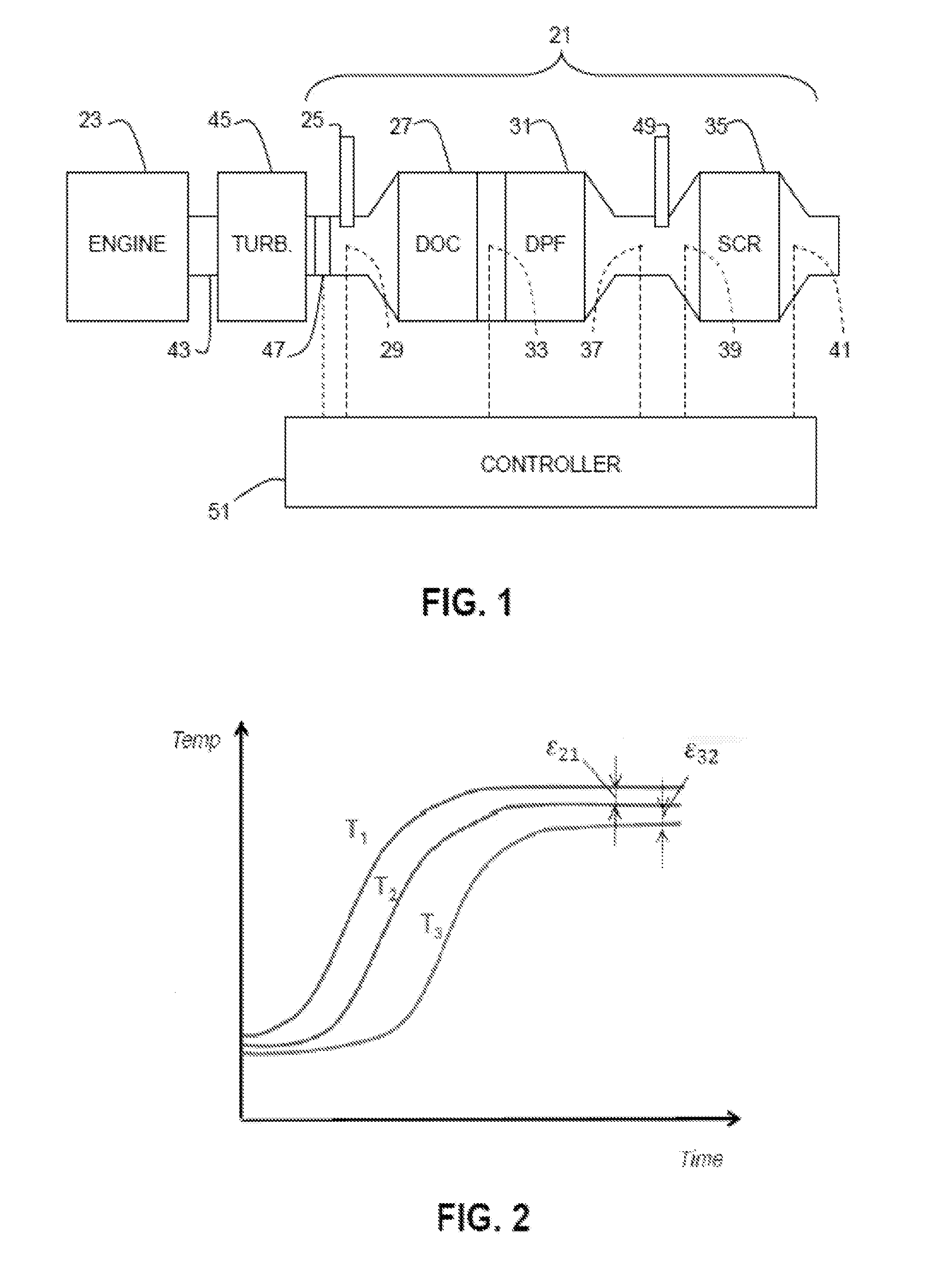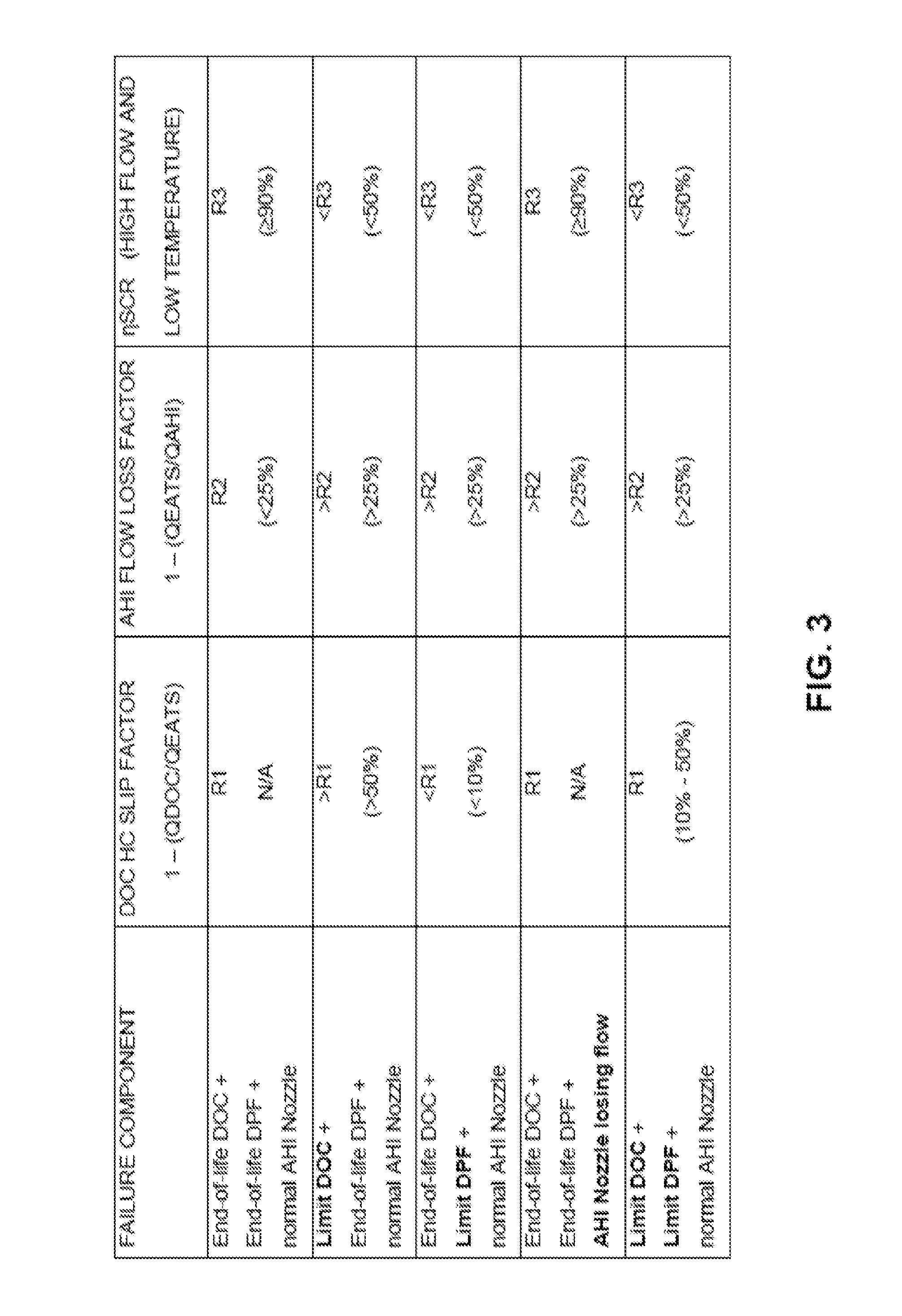Method for monitoring components in an exhaust after treatment system, an exhaust after treatment system, and a controller for an exhaust after treatment system
a technology of exhaust after treatment and components, applied in the direction of exhaust treatment electric control, machines/engines, mechanical equipment, etc., can solve the problems of not being able to the temperature downstream of the doc and upstream of the dpf being lower than expected, and the method cannot monitor the catalytic activity of the catalytic dpf. achieve the effect of substantially increasing the cost or complexity of the eats
- Summary
- Abstract
- Description
- Claims
- Application Information
AI Technical Summary
Benefits of technology
Problems solved by technology
Method used
Image
Examples
Embodiment Construction
[0013]FIG. 1 shows an exhaust after treatment system (EATS) 21 for a diesel engine 23. The EATS 21 comprises an AHI nozzle 25, a diesel oxidation catalyst (DOC) 27 downstream from the AHI nozzle, a first temperature sensor 29 upstream of the DOC, a diesel particulate filter (DPF) 31 downstream of the DOC, a second temperature sensor 33 downstream of the DOC and upstream of the DPF, a selective catalytic reduction catalyst system (SCR) 35 downstream of the DPF, a third temperature sensor 37 downstream of the DPF and upstream of the SCR, a first NOX sensor 39 upstream of the SCR, and a second NOX sensor 41 downstream of the SCR. A conduit 43 upstream of the DOC and connecting the EATS to the engine 23 typically includes a turbine 45 of a turbocharger and an arrangement 47, such as an orifice and flow meter for measuring, or control logic for calculating exhaust mass flow. A nozzle 49 connected to a source of DEF (not shown) is typically provided upstream of the SCR 35 and downstream o...
PUM
 Login to View More
Login to View More Abstract
Description
Claims
Application Information
 Login to View More
Login to View More - R&D
- Intellectual Property
- Life Sciences
- Materials
- Tech Scout
- Unparalleled Data Quality
- Higher Quality Content
- 60% Fewer Hallucinations
Browse by: Latest US Patents, China's latest patents, Technical Efficacy Thesaurus, Application Domain, Technology Topic, Popular Technical Reports.
© 2025 PatSnap. All rights reserved.Legal|Privacy policy|Modern Slavery Act Transparency Statement|Sitemap|About US| Contact US: help@patsnap.com



